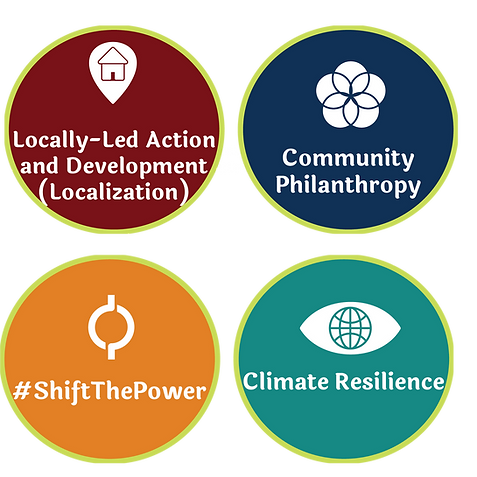
818+
55,702+
Barangays with DRRM Plans, Early Warning Systems, and Contingency Plans
Individuals with Life-Saving DRRM Knowledge, Early Warning Systems, and Community-Led Preparedness Strategies

For over two decades, CDP has worked with vulnerable groups and local leaders to craft community-driven plans, programs, and policies. Our vision is simple: to create safe, resilient, and thriving communities across the Philippines—where every individual, regardless of their circumstances, can actively participate in shaping their future.
Resilience Starts with Empowered Communities
At the Center for Disaster Preparedness (CDP) Foundation, we believe that true resilience is community-led, rooted in local knowledge and driven by the people themselves. For 25 years, we’ve partnered with 204+ barangays or local communities across the Philippines, equipping them with the tools, knowledge, and skills to lead their own disaster risk reduction and management. Whether through localizing humanitarian action, nurturing community-led development, or fostering climate resilience, CDP is dedicated to amplifying local voices and empowering communities for lasting impact.
Our Unique Approach
CDP has evolved from a disaster resource training center into a regional hub that champions Community-Based Disaster Risk Reduction and Management (CBDRRM). What sets us apart is our commitment to community philanthropy, where we recognize and leverage the existing assets, strengths, and capacities of communities.
Through movement building, we advocate for more inclusive and sustainable disaster preparedness, bridging local actions with national and global platforms.
We are deeply aligned with the Humanitarian-Development-Peace (HDP) Nexus, integrating disaster risk reduction, climate resilience, and peacebuilding in our approach. By fostering synergy across sectors, we ensure that our work reflects the interconnectedness of these fields, addressing the root causes of vulnerability and conflict while promoting long-term sustainability.
Local Solutions for Global Challenges
From climate change adaptation and mitigation (CCAM) to disaster preparedness and response, CDP is driven by the principles of localization, where communities are not just recipients of aid but are decision-makers and drivers of their own development. Our survivor- and community-led response (SCLR) approach further underscores this by ensuring that solutions are crafted by and for the people on the frontlines of disasters and crises.
Building a Movement for Lasting Change
As part of the global #ShiftThePower movement, CDP is committed to democratizing aid and philanthropy. We are building a movement that puts local communities at the heart of decision-making, encouraging collaboration among diverse sectors—governments, civil society, local organizations, and academia—to create resilient systems that endure long after external aid has left.









